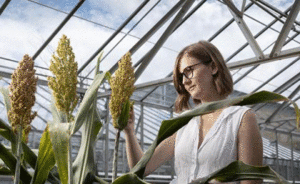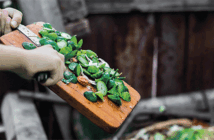
“Farmers have been manipulating the DNA of plants using conventional breeding technologies for millennia, and now with new gene-editing technologies, we can do this with unprecedented safety, precision and speed,” says Dr Karen Massel from University of Queensland’s Centre for Crop Science.
Massel’s review, published in Theoretical and Applied Genetics, recommends integrating CRISPR-Cas9 genome editing into modern breeding programmes for crop improvement in cereals.
In proof-of-concept studies, Massel and colleagues at the Queensland Alliance for Agriculture and Food Innovation (QAAFI) applied gene editing technology to sorghum and barley pre-breeding programmes.
The researchers were able to edit the sorghum’s genes to unlock the digestibility level of the available protein and to boost its nutritional value for human’s and livestock.
“We’ve also used gene-editing to modify the canopy architecture and root architecture of both sorghum and barley, to improve water use efficiency,” says Massel.




























































































